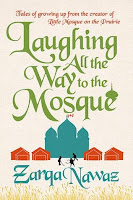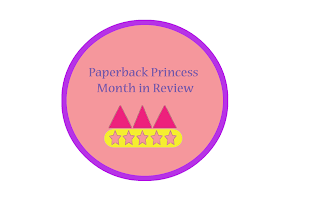Recently I was watching a Booktube video from Jesse @ Bowties and Books where they discussed all of the authors that they'd never read from again. One of the authors they mentioned was Donna Tartt, an author who I also very much dislike due to her problematic characters and extremely racist writing. I commented that I agreed with Jesse because Tartt tends to write really evil characters with no moral compasses, and another commenter asked me if I tend to stay away from any books with a lot of evil characters. The comment really got me thinking about how I approach books where most of the characters have little to no moral compasses, and I realized that my response would be better suited as a discussion post, haha! So, here is a longer response to what was a really thought-provoking comment that got me thinking about my own reading, as well as me echoing some great points that Jesse made in their video about Tartt.
For context, here's what I replied to the commenter (who I'll clarify, was lovely and just asking a genuine question, there was no fighting in this comment section, lol):
I have no problem reading books with morally grey/bad characters, but when the characters use racial slurs/commit absolutely horrible acts with no commentary whatsoever about why their actions advance some sort of message about the plot or develop their characters, then I have a problem with it, which is something I noticed in The Secret History.
I'll also start off by saying that in the context of this post, when I refer to "evil" characters, I'm not talking about stereotypical villains in fantasy or action books, it's pretty clear in those books that there is a line between good and evil. I'm also not talking about villains who sometimes have a good side, for example someone like Loki. Instead, I'm talking about books in which all or most of the characters commit inexcusable, heinous acts, most of them being bigoted in nature, and especially characters who use hate speech.
The Secret History is the book by Tartt that I referenced in relation to my comment on Jesse's video, though they mostly discussed all of the problems with The Goldfinch in their video. Still, most issues with The Goldfinch are linked with the issues in The Secret History. You might've read my rant review post about The Secret History, as well as the countless other posts I've made about my problems with dark academia, so I'm not necessarily going to restate those opinions again. What I will say, however, is that I have noticed that I have a serious problem with characters who are just horrible people for the sake of being horrible people, especially when it comes to matters such as race.
A white author like Tartt needs to be very careful with how she portrays racist characters, so that she is highlighting that the racism is the problem here, and that this character is very much in the wrong. But the thing with Tartt, is that it almost reads like she gets joy out of writing characters who are just utterly racist. She throws around the n-word in her writing like she needs to meet a quota, and oftentimes the characters who use the n-word are doing so in a context which is supposed to be read as comical, but instead is just utterly wrong. Tartt writes these characters like we're just supposed to go: "oh that's just how so and so talks," "that's just a part of their character," "that's what makes them so funny, how socially unaware they are." But the truth is, this language doesn't advance any of the characters' arcs, it doesn't tell me anything new about the characters that is important for me to know. It just seems like Tartt wants to get a free pass at using the n-word so she uses it under the guise that the characters saying it are just naturally bad people. But there is nothing to gain by portraying such racism in a character.
I saw a lot of these issues in Bunny, one of the main characters in The Secret History, who is probably one of the worst characters I've ever read. Not only is he racist, but he is also extremely homophobic, transphobic, and commits very heinous acts alongside the other main characters. While some reviewers have pointed out his bigotry, ultimately I have found a lot of his issues to be glossed over by positive reviews of the book, as people instead excuse his actions and the actions of the other characters because "it's dark academia, all of the characters are supposed to be bad." But the truth is, if characters are "supposed" to have questionable moral compasses, then shouldn't the reasoning behind why they have such horrible personalities be clear to me as a reader?
In my opinion, there is never an excuse for a white author to use the n-word in their writing, or for a straight or cis-gendered author to use homophobic or transphobic language. Now I'll make it clear that as far as I know, Tartt has never stated her sexuality or gender identity, so I'm not assuming she is straight or cis-gendered, but the point remains: I have a problem with authors not part of a specific group using slurs against that specific group in their characters. This may not be everyone's opinion, but it personally makes me uncomfortable, and I think there are other ways to show that a character is a bad person without using hate speech, and I often find that Tartt goes down this route.
I suppose I do find myself more critical of books where all of the main characters are bad, because I wonder why the author made those choices and especially I find it difficult to separate what the characters did and my unbiased opinions on the characters. In particular, I need to look at if the author handles bad characters with sensitivity, or if they are more going for shock value and excuses to use slurs. I do have a problem with authors being really gorey or triggering with their themes when there doesn't seem to be a need for such gore or triggers, and a lot of this stems from the actions of the characters as well. If a character needs to be evil, then by all means, make them evil. But I wish that more writers, particularly writers of privileged groups, would pay more attention to sensitivity when writing evil characters. If fans of their books are ignoring problematic characters and saying that they love such characters, then that may be an indication that the author hasn't done enough to show that the actions of said bad character are condemnable.
All of this is to say, if I'm going to read a book with really evil main characters in it, then the reasoning for why the characters are the way that they are must be clear to me. I personally don't want to go through the process of reading a book with some really awful content just for the hell of it. I understand that this may not be everyone's preference, as everyone's got different reading opinions. But this is just where my head's at when it comes to reading about bad characters! I'd be curious to know how other people approach evil/bigoted characters in books. Do you tend to stay away, or are you able to separate your personal values from the characters?
Emily @ Paperback Princess


.jpg)



